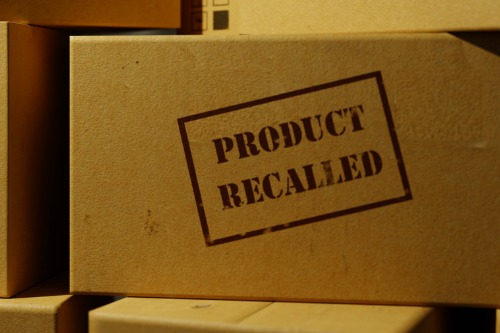Faulty products face recalls – these are your rights when things go wrong

Authored by DAS
What should I do if I have bought a product which is subject to a recall?
If you have not already been contacted, you should get in contact with the manufacturer/retailer of the product. They will provide instructions on what to do next and they will normally also ask you to provide proof of purchase.
The process can differ depending on the product, but generally you would expect for either the product to be collected or for repairs to be carried out (this would depend on what they instruct you on at first contact). Further, there should be no charge for any repair works and they should advise on an estimated time frame for the process.
Under the Consumer Rights Act 2015, you have the right to a repair, replacement or possibly refund for goods which are not of satisfactory quality, fit for purpose and/or as described. Therefore, you should follow the product recall instructions from the retailer or manufacturer, as they may be able to repair or replace the good in the first instance.
Can I make a claim for compensation ifI have already consumed the goods?
You may still be able to make a claim for compensation in certain circumstances and you could have options under the Consumer Rights Act 2015, Consumer Protection Act 1987 or actions based on negligence. However, you would need to provide proof of the fault/damage which may be difficult if you have already consumed the goods.
My health has been impacted by faulty products, does this impact my ability to make a claim?
You can still bring a claim where your health has been impacted. Depending on the circumstances, you may be able to bring a claim against the retailer of faulty goods. Alternatively, The Consumer Protection Act 1987 provides any person (not just a purchaser) with the right to claim against manufacturer, if the good is defective and the good causes either:
Private property damage worth over £275 in value;Personal injury;Death.
Lastly, you may also be able to bring a claim based on negligence if the faulty product has caused personal injury or damage to property. You should take detailed advice on all your options as any success will be subject to evidence.
I have served customers in my business with these recalled goods; am I liable if they become ill as a result?
A consumer will have rights available under the Consumer Rights Act 2015 against the business/retailer that dealt with them and may be able to bring a claim.
Under the Consumer Protection Act 1987, any liability would depend whether a retailer holds themselves out as manufacturing the products. Generally, any claim under the Consumer Protection Act 1987 would be against the “producer”, that is, any person who holds themselves to be the producer of the product, puts a name to it, holds the trademark or distinguishing mark over it, and those that import the product into the UK.
A consumer may also try to argue negligence, but they would have to establish the business owes them a duty of care, that there has been a breach of that duty which has caused damage and this was foreseeable.
If I ignore a product recall, can I still get compensation if I become ill?
Ignoring a product recall could put your safety at risk. You should stop using the product and contact the manufacturer to discuss the next steps. Under the Consumer Protection Act 1987, you would still be eligible for a claim for compensation as long as the claim is made within 3 years from the date of the damage/injury OR date of knowledge of damage/injury, and as long as it is made within 10 years of the product being put into circulation.
I have purchased goods because they reflect my ethical or religious beliefs and have since found out they actually didn’t; can I claim compensation?
If you have evidence to prove the description of the goods was false, you may be able to bring a claim under the Consumer Rights Act 2015 as a breach of the implied term to be as described.
Alternatively, you could potentially be able to claim compensation for misrepresentation. A misrepresentation is an untrue statement of fact or law which induces another to enter into the contract causing loss. Depending on the circumstances, affected parties could be eligible for rescission (where the contract is set aside) of the contract and/or damages.
Products such as electric scooters are known to have battery faults. Will my use of scooters and similarly susceptible products impact my ability to make a claim?
Depending on the circumstances, you may still be able to bring a claim under the Consumer Rights Act 2015, Consumer Protection Act 1987 or common law negligence. However, any success will depend on the specific facts and what evidence you have to support your claim that show the product is defective/faulty.
However, producers of defective products may have certain defences open to them such as if the product did not cause the damage/personal injury and the level of scientific and technical knowledge wasn’t advanced enough to be expected to discover the defect.
Should you have any concerns, you should take legal advice at your earliest possible opportunity.





